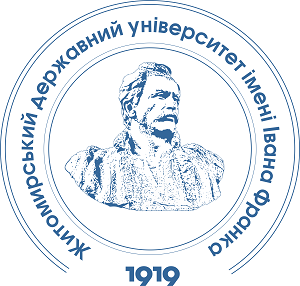THEORETICAL JUSTIFICATION OF THE PSYCHOLOGICAL HEALTH HARMONIZATION PROGRAM FOR MEMBERS OF PROTESTANT COMMUNITIES IN UKRAINE (SPIRITUAL-VALUE APPROACH)
DOI:
https://doi.org/10.32782/psy-2025-5-18Keywords:
psychological health, protestantism, religious personality, values, value-meaning sphere of personality, spiritual-value approach, training, psychotherapyAbstract
The purpose of this article is to present a program for harmonizing psychological health in wartime conditions for members of Christian communities of Protestant denominations and to reveal the features of the author’s spiritual-value approach, which is the basis of the program. The psychological health harmonization program for Protestant believers living in wartime conditions in Ukraine was prepared based on the results of an empirical study of the value determination of psychological health of an individual. The case study was conducted from April 2024 to January 2025 and involved 512 respondents. The sample included representatives of various Protestant churches in Ukraine (264 people) and respondents who adhere to an atheistic worldview (248 people). As a result of the empirical study, the state of psychological health and the value-meaning sphere of members of Protestant communities, as well as the value factors of maintaining psychological health, were clarified, which became the basis for developing the author’s spiritual and value approach to the phenomenon of psychological health. There are no comprehensive programs for harmonizing psychological health for believers based on Protestant doctrine and spiritual and semantic self-regulation in Ukraine, which makes the development relevant. The target audience of the program is members of Protestant denominations. The proposed program involves a combination of scientifically based psychotherapeutic and psychocorrectional technologies with spiritual practices of faith, which corresponds to the value priorities and motivational orientation of this target group. The program is intended to become not only a means of individual healing and support, but also a tool for restoring collective mental potential, ensuring the resilience of Protestant communities in the face of the challenges of modernity.
References
Dutton M. A., Dahlgren S., Martinez M., Mete M. The holistic healing arts retreat: An intensive, experiential intervention for survivors of interpersonal trauma. Psychological Trauma: Theory, Research, Practice, and Policy. 2023. Vol. 15(5). Р. 727–737. URL: https://doi.org/10.1037/tra0001178.
Emmons R. A., McCullough M. E. Counting blessings versus burdens: an experimental investigation of gratitude and subjective well-being in daily life. Journal of Personality and Social Psychology. 2003. Vol. 84(2). Р. 377–389. URL: https://doi.org/10.1037//0022-3514.84.2.377.
Kelsven S., McLean C., Widjanarko K., Bormann J., Lang A. Trait Mindfulness Moderates Treatment Outcomes in a Randomized Controlled Trial of Mantram Repetition Program for Veterans with Post-Traumatic Stress Disorder. Journal of Integrative and Complementary Medicine. 2024. Vol. 30. № 10. URL: https://doi.org/10.1089/jicm.2024.0181.
Khoury B., Knäuper B., Schlosser M., Carrière K., Chiesa A. Effectiveness of traditional meditation retreats: A systematic review and meta-analysis. Journal of Psychosomatic Research. 2017. Vol. 92. P. 16–25. URL: https://doi.org/10.1016/j.jpsychores.2016.11.006.
King B. G., Conklin Q. A., Zanesco A. P., Saron C. D. Residential meditation retreats: their role in contemplative practice and significance for psychological research. Current Opinion in Psychology. 2019. Vol. 28. P. 238–244. URL: https://doi.org/10.1016/j.copsyc.2018.12.021.
Koenig G. Harold. Religion, Spirituality, and Health: The Research and Clinical Implications. International Scholarly Research Notices. 2012. Vol. 8. P. 5. URL: https://doi.org/10.5402/2012/278730.
Kolk Van der B. The body keeps the score: Brain, mind, and body in the healing of trauma. New York : Viking, 2014. URL: https://www.academia.edu/34890820/THE_BODY_KEEPS_THE_SCORE_Brain_Mind_and_Body_in_the_Healing_of_Trauma.
Newberg A., Waldman M. R. How God changes your brain: Breakthrough findings from a leading neuroscientist. New York : Ballantine Books, 2009. URL: https://psycnet.apa.org/record/2009-03943-000.
Ogden P., Minton K., Pain C. Тrauma and the body: A sensorimotor approach to psychotherapy. New York : Norton, 2006. URL: https://psycnet.apa.org/record/2006-12273-000.
Pacek P., Truszczyński O. Нybrid war and its psychological consequences. Torun International Studies. 2020. Vol. 1(13). P. 23–30. URL: https://doi.org/10.12775/TIS.2020.002.
Porges S. W. The polyvagal theory: Neurophysiological foundations of emotions, attachment, communication, and self-regulation. New York : Norton, 2011. URL: https://psycnet.apa.org/record/2011-04659-000.
Schwartz A. Beyond Trauma Retreat: A Guided Journey of Resilience, Hope and Growth. Retrieved from blog of Dr. Arielle Schwartz. URL: https://drarielleschwartz.com/beyond-trauma-a-guided-journey-of-resilience-hope-andgrowth-2/.






